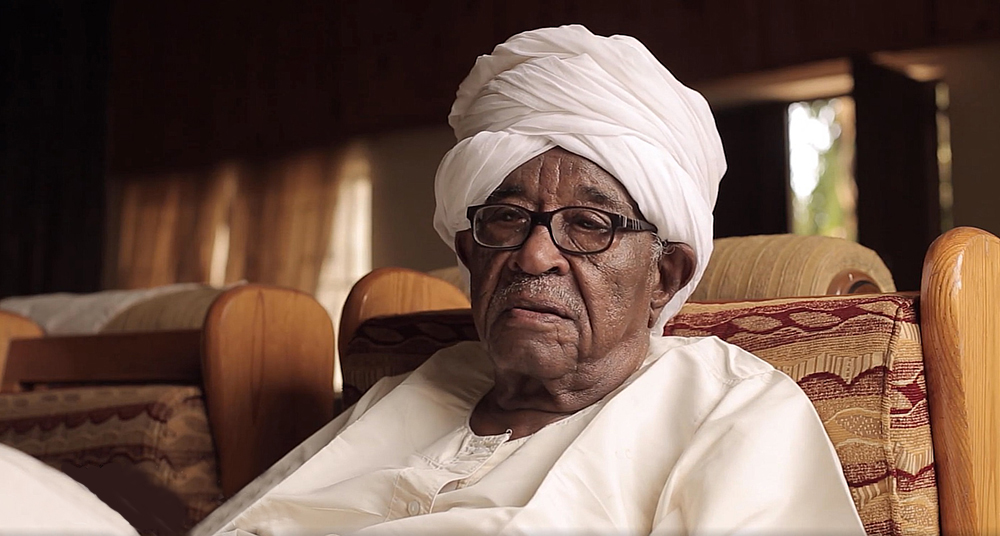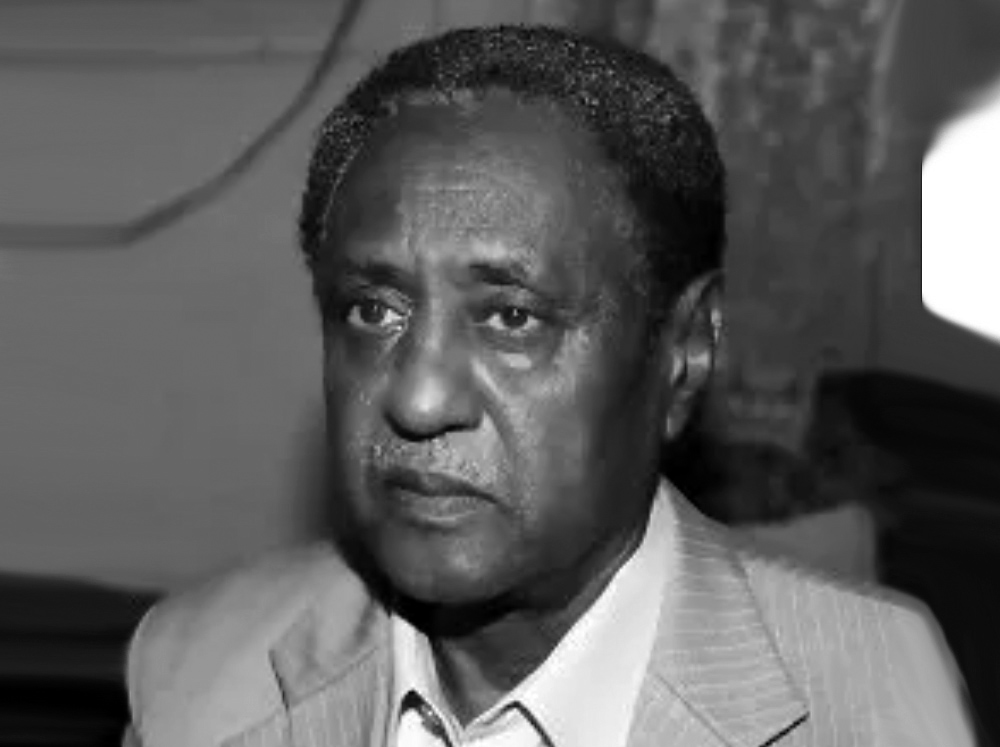
Mahjoub Mohamed Saleh and Press Nationalization - 3 - 3
Sidiq Mihesi
Mahjoub Mohamed Saleh was a key contributor to Al-Ayyam newspaper before the change of government in Sudan through Jafar al-Nimeiris coup in 1996. Mahjoub, who was initially unconvinced about the decision to nationalize newspapers made by the new military regime despite his old leftist ideas rooted in the Sudanese Liberation Movement "Haddat," played a major role. At that time, leftist slogans dominated the scene in pursuit of establishing a socialist system. Nevertheless, he could not reject the task assigned to him, and the regime labeled him with "counter-revolutionary forces." He found himself compelled to do his brothers duty, not a hero.
Mahjoub explains that he was not chosen by the regime to undertake this task until after the failure of a committee led by the Deputy Minister of Information, Omar Mohamed Saeed, and including Kaili Ahmed Omar, Abdel Karim Osman al-Mahdi, Abdullah Rajab, and the poet Munir Saleh, to present a vision for the nationalization process. As this committee was not aware of the technical nature of the mission, he was selected for the nationalization project.
Mahjoub says, "I sought to find a compromise between the May authorities and the newspaper owners until a law compensating the owners of nationalized newspapers was issued. This law saved the independent press from the complete confiscation intended by President al-Nimeiri. According to this nationalization concept, a committee was formed to evaluate the machines that were to be nationalized based on their market value. Another committee was formed with representatives from the Public Corporation for Press and Publication, the General Auditors Office, the Director of Printing at the General Corporation for Press and Publication, the Director of the Government Printing House, and a representative from the Chamber of Commerce. This committee was entrusted, after additional specialized elements were added to it for assessing buildings and furniture damages resulting from the loss of successful commercial activity.
The work continued in estimating the compensation for the owners of nationalized newspapers after the following meeting:
The first committee assessed the properties that were transferred to the state due to nationalization. The second committee, based on the first committees report, evaluated the damages resulting from the loss of successful commercial activity. The first committee found that there were four newspapers with properties: Al-Ayyam, Al-Sudan Al-Jadid, Al-Sahafa, and Al-Rai Al-Am. The committee limited its task to assessing properties such as machines, real estate, furniture, and vehicles without considering the bank balances of these newspapers or their debts. The committee valued the machines at the book value with a 5% depreciation according to Sudanese tax regulations. As for the land, the committee valued it at the original purchase value without an increase, considering it as land granted under conditions encouraging industry, and not for the owner to dispose of it by selling or benefiting from it as real estate.
Thus, the newspapers became government-owned and affiliated with the Socialist Union, the ruling party. Badr al-Din Suleiman was appointed chairman of the board of Al-Ayyam, and Musa al-Mubarak for Al-Sahafa. The choice of the editor-in-chief was from the responsibility of the ruling party. In a later stage, Mansour Khalid was chosen for Al-Sahafa, and Jafar Muhammad Ali Bakheet for Al-Ayyam.
In an interview conducted with him by the journalist Rasha Osha on September 12, 2018, for Al-Meghar newspaper, Mahjoub said, "We felt that private ownership of newspapers would not move forward. At that time, I was the editor-in-chief of Al-Hayat. We proposed the idea of turning newspapers into public joint-stock companies. We discussed the matter with Farouk Hamadallah, a member of the Revolutionary Leadership Council. He was enthusiastic about the idea. At the same time, the Arab nationalists were working on the same idea but with a different approach with Omar al-Haj Musa, the Minister of Information, and they presented the proposal to President Nimeiri, who approved it without having an idea).
Mahjoub continues: (I had no connection with this committee; it was not announced, and they intended to hide it from us. We were working with Farouk. As for their committee, its final statement and reports were written by its secretary, Abdullah Rajab. When they met with the Revolutionary Council, Farouk Hamadallah was surprised by this, and he proposed the two projects, our project and the project of the Arab nationalists. He suggested appointing the chairman of the Press Council, who issues the two newspapers. Omar al-Haj Musa called me and requested my presence at a meeting with President al-Nimeiri, and he offered me the position. I initially refused and told them, You are now planning to establish a political organization, and if you nationalize the press now, and hand over the newspapers to the ministry, they will become government-owned, and thus, it will be a stigma for me for a lifetime. Wait until the organization is announced and hand it over the newspapers. They informed me that they had decided and the matter was settled. We decided to establish the Sudanese Press Foundation, which publishes all newspapers, and you will be its president. I objected to the idea. Create a group of press roles. Nimeiri said, We will establish two houses. The important thing is that I told them I would not accept issuing a newspaper owned by the state, but I would accept the presidency of this foundation if its mission was to settle the previous situation and grant people their rights and pensions. Nimeiri asked me to issue the decision from the council I would preside over. We created two councils, one for Al-Sahafa newspaper, chaired by Jamal Muhammad Ahmed, and the other for Al-Ayyam newspaper, chaired by Musa al-Mubarak. I focused on enumerating the journalists, their rights, and years of service. After six months, we liquidated all of that and granted people their rights)."


